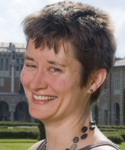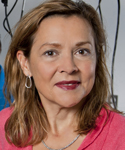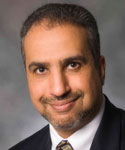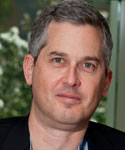Ideas that have influenced, engaged faculty subject of this year’s Scientia colloquia
This year’s Scientia colloquia will investigate “The Power of Ideas” with sets of five-minute talks by faculty on the ideas that have most powerfully influenced and engaged them in their careers and intellectual life.
The first set of talks will feature faculty from the schools of Social Science, Architecture, Music and Engineering and will be at 4 p.m. Sept. 18 in Ray Courtyard at the Rice Student Center. A reception will be held after the colloquium. (In case of inclement weather, the colloquium will be held in Herring Hall, Room 100.)
The speakers are:
Mahmoud El-Gamal, the Chair of Islamic Economics, Finance and Management and professor of economics and of statistics, who will discuss “Social Capital and Finance.” “The notion of ‘social capital’ — the social connections and group memberships can benefit groups and individuals — has captured the imagination of policymakers as it migrated through sociology, political science and economics,” he said in his abstract of the talk. “Modern finance monetizes social capital, equally of investment banker fraternities and poor rural women, unwittingly diminishing its stock.”

SARAH WHITING
Sarah Whiting, dean of the Rice School of Architecture, who will present “Super.” “I’m interested in how cities digest bigness: parks, university campuses and other urban programs that exceed the size of a typical city block,” she wrote. “What challenges does the supersized pose for a city? What opportunities might it offer? Is there a corresponding ‘superpublic’? And what, really, is a superblock in the first place?”
Anthony Brandt, associate professor of composition and theory at the Shepherd School of Music, who will discuss “Why Minds Need Art.” “Do minds need art?” he asked. “The research of cognitive scientist Mark Turner and Baylor neuroscientist David Eagleman (a Rice alum) inspired me to develop an answer based on brain science. Their work reveals underlying cognitive mechanisms that enable us to innovate and imagine, thereby establishing that every human mind is vigorously creative and that human thinking is itself an art form.”

NAOMI HALAS
Naomi Halas, the Stanley C. Moore Professor in Electrical and Computer Engineering and director of the Laboratory for Nanophotonics, who will explore “Innovative Fallout.” “A great deal of effort is spent in encouraging people to ‘be creative’ or to ‘innovate,'” she said. “However, little is ever said about how to prepare for what happens next.”
Scientia is an institute of Rice University faculty founded in 1981 by the mathematician and historian of science Salomon Bochner. The lecture series provides an opportunity for scholarly discussion across disciplinary boundaries; its members and fellows come from a wide range of academic disciplines. For more information on Scientia, visit http://scientia.rice.edu.




Leave a Reply